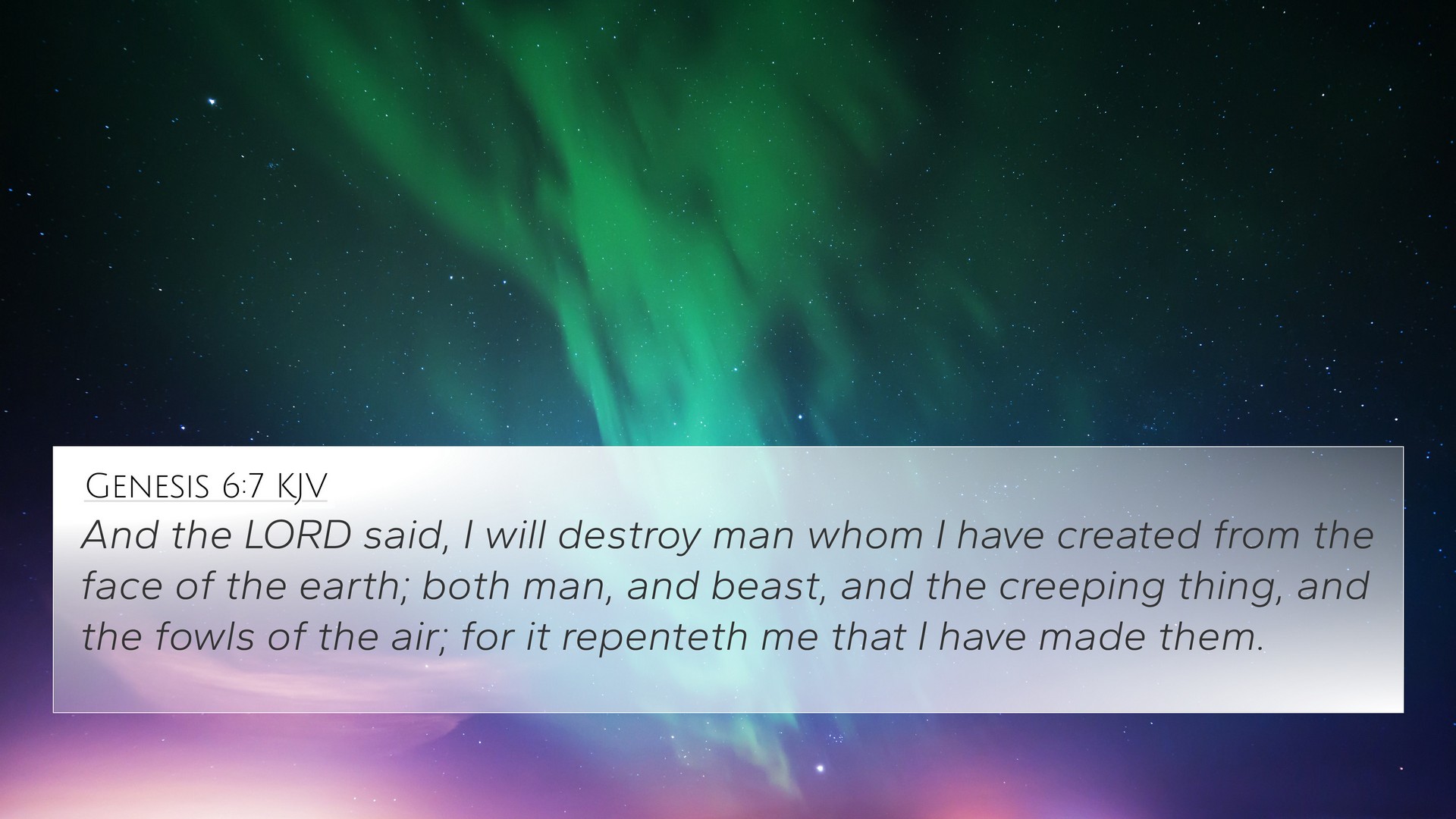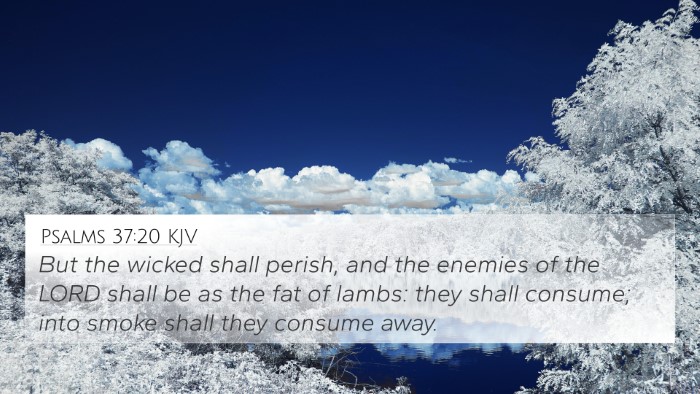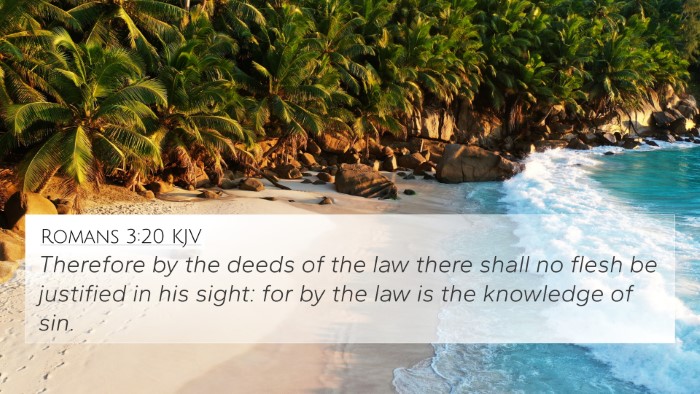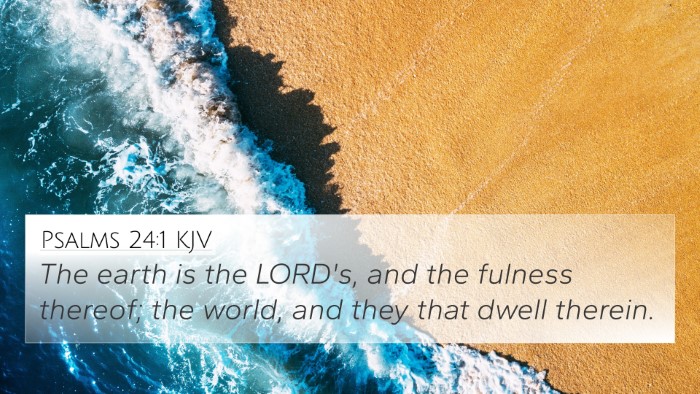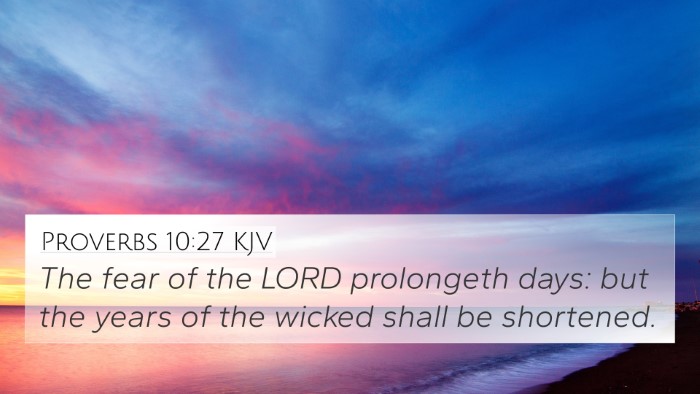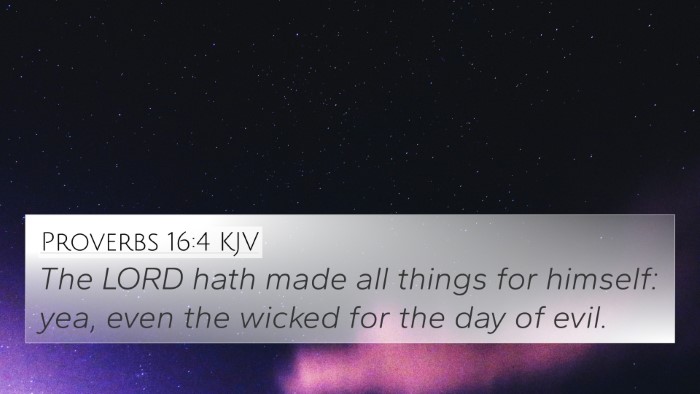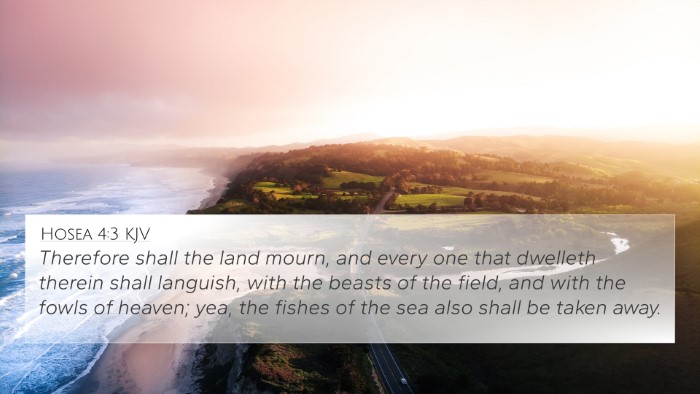Understanding Genesis 6:7
Verse: "And the LORD said, I will destroy man whom I have created from the face of the earth; both man, and beast, and the creeping thing, and the fowls of the air; for it repenteth me that I have made them."
Summary of Meaning
This verse is a powerful expression of God's grief and intention to bring judgment upon humanity due to the pervasive wickedness that filled the earth. The divine decision to destroy man is rooted in the principle of divine justice and righteousness, reflecting God's holiness and ultimate authority over His creation.
Commentary Insights
Matthew Henry's Commentary
Henry emphasizes the severity of God’s judgment as a direct response to human sinfulness. He notes that God’s decision reflects His sorrow over creating beings that have turned away from Him. The terms "man, beast, and creeping thing" signify that the entire creation suffers due to humanity’s rebellion, illustrating the interconnectedness of all life.
Albert Barnes' Notes
Barnes focuses on the nature of God's repentance, which does not indicate a change in His character but a change in His dealings due to human actions. He explains that God's attribute of mercy is evident even within judgment, as this act is a means to cleanse the world and uphold righteousness. The use of "repenteth" illustrates God's deep sorrow over human disobedience.
Adam Clarke's Commentary
Clarke elaborates on the anthropomorphic language used here, suggesting it communicates God’s emotional response to sin. He explains that the destruction mentioned serves a broader purpose of promoting divine justice and restoring order in creation. His commentary sheds light on God’s mercy, suggesting that this action was regretful yet necessary for the sake of His ultimate plan for humanity.
Cross-References to Genesis 6:7
- Genesis 1:26-27: The creation of man in God's image emphasizes the significance of humanity's actions and their consequences.
- Genesis 6:5: Describes the wickedness of man, leading to God's decision to destroy humanity.
- Genesis 7:23: Connects to the flood narrative, where the decree against mankind is executed.
- 2 Peter 2:5: Reflects on God’s judgment against the ungodly, drawing parallels with Noah's time.
- Matthew 24:37-39: Jesus refers back to the days of Noah, highlighting the continuity of divine judgment over sin.
- Isaiah 53:10: Points to the cost and heart of God regarding human sin, emphasizing redemption over destruction.
- Romans 1:18: Discusses God's wrath being revealed against all ungodliness, connecting to the themes in Genesis 6:7.
Theological Themes
This verse encompasses several key theological themes:
- The Nature of God: Reflects God's holiness and justice.
- The Weight of Sin: Illustrates how sin impacts not just humanity, but the entire created order.
- Judgment and Mercy: Shows that judgment is often a means of restoring and cleansing.
- Human Responsibility: Highlights the consequences of human choices in relation to God's will.
Reflections and Applications
In applying the lessons from Genesis 6:7, believers are called to consider the gravity of sin and the compassionate heart of God. This scripture encourages self-examination and an understanding of the broader implications of sin within a community and creation. Moreover, the understanding of God's judgment as rooted in His love and desire for righteousness can help guide moral choices today.
Conclusion
Genesis 6:7 serves as a profound reminder of the seriousness of sin and the responsive nature of God’s character. Through cross-references and thematic connections within Scripture, we can comprehend the full narrative of God’s redemptive plan amidst the reality of judgment. Engaging with this text through comprehensive Bible study and cross-referencing helps deepen our understanding of biblical themes and their applications in contemporary life.
